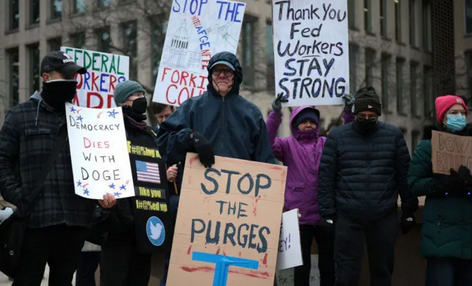South Florida Federal Workers Without Pay: Is Washington Listening?
The federal government shutdown has stretched into another week, and its effects are increasingly evident in South Florida. Federal employees, travelers, and local communities are bearing the strain of stalled operations, while lawmakers in Washington remain at an impasse over budget negotiations.
Federal Employees Without Pay
At Miami International Airport (MIA), Transportation Security Administration officers and air traffic controllers continue reporting for duty even though their paychecks have been frozen. Classified as essential workers, they must keep working despite mounting financial pressure.
Aaron Baker, a TSA officer at MIA, said the uncertainty weighs heavily on employees. “You worry about your daycare bill, your car insurance, or just paying for lunch tomorrow. We’re here doing our jobs, but we’re also supporting families.”
Many federal workers in the region live paycheck to paycheck, and while they are committed to maintaining security and operations, the absence of pay is taking a toll.
Travelers Show Understanding, but Frustration Builds
So far, security lines at MIA remain manageable, but concerns are growing that extended delays may be unavoidable if staffing levels drop. Some officers warn that within two weeks, fewer employees may be able to cover shifts, potentially leading to longer wait times at checkpoints.
Travelers interviewed at MIA expressed mixed reactions. Some worried about the impact on their schedules, while others sympathized with employees forced to work without compensation.
“It’s not fair to the workers. They’re keeping us safe, but they’re not getting paid,” one traveler said.
The Transportation Security Administration acknowledged the risk in a statement: “An extended shutdown could mean longer wait times at airports. We ask passengers for patience as our officers remain committed to their mission of keeping the traveling public safe.”
Beyond Airports: Wider Community Effects
The impacts of the shutdown extend far beyond airports.
- National Parks: In South Florida, Everglades and Biscayne National Parks remain open but with reduced staff. Visitor services are limited, and maintenance work is being postponed.
- Veterans’ Services: At the Miami VA Medical Center, some programs have been scaled back or delayed, affecting veterans who rely on regular medical and support services.
- Federal Agencies: Civilian employees in agencies such as Agriculture and Housing have been furloughed, slowing down important programs for farmers, families, and low-income residents.
These cutbacks highlight the reach of federal operations in everyday life, from environmental protection to community support.
Services Still Operating
Not all services have stopped. Mail delivery continues, Social Security and Medicare payments are unaffected, and federal courts remain open for now. Active-duty military members are still serving, although some civilian employees in defense-related roles have been placed on leave.
These exceptions provide some relief, but the overall picture in South Florida remains one of mounting strain.
Community Leaders Voice Concern
Local officials and business leaders warn that the economic impact of a prolonged shutdown could be significant. South Florida’s economy depends heavily on tourism, trade, and services connected to international travel. Any disruption at airports or in federal services could ripple across the region.
“This is not just a federal issue,” said one Miami-Dade County official. “It’s a local issue that affects families, businesses, and communities here in South Florida.”
Economists note that while a short-term shutdown may not cause lasting harm, a longer one could slow consumer spending, delay government contracts, and create instability for industries tied to federal oversight.
A Growing Uncertainty
For many residents, the uncertainty is the most difficult part. Families who depend on federal paychecks do not know when they will be compensated, while travelers face the possibility of future delays and disruptions.
Timothy Williams, a Department of Defense employee traveling from Miami, summed up the concern: “It’s difficult to see the government unable to come to an agreement while so many people here are directly affected.”
Outlook
As the shutdown continues, South Florida remains in a waiting pattern. Essential employees show up to work without pay, services shrink at national parks and veterans’ facilities, and communities brace for the possibility of longer-term consequences.
For now, residents are watching closely for signs of progress in Washington. The question remains how long federal employees and the public can sustain the strain of a shutdown that shows no clear end in sight.







